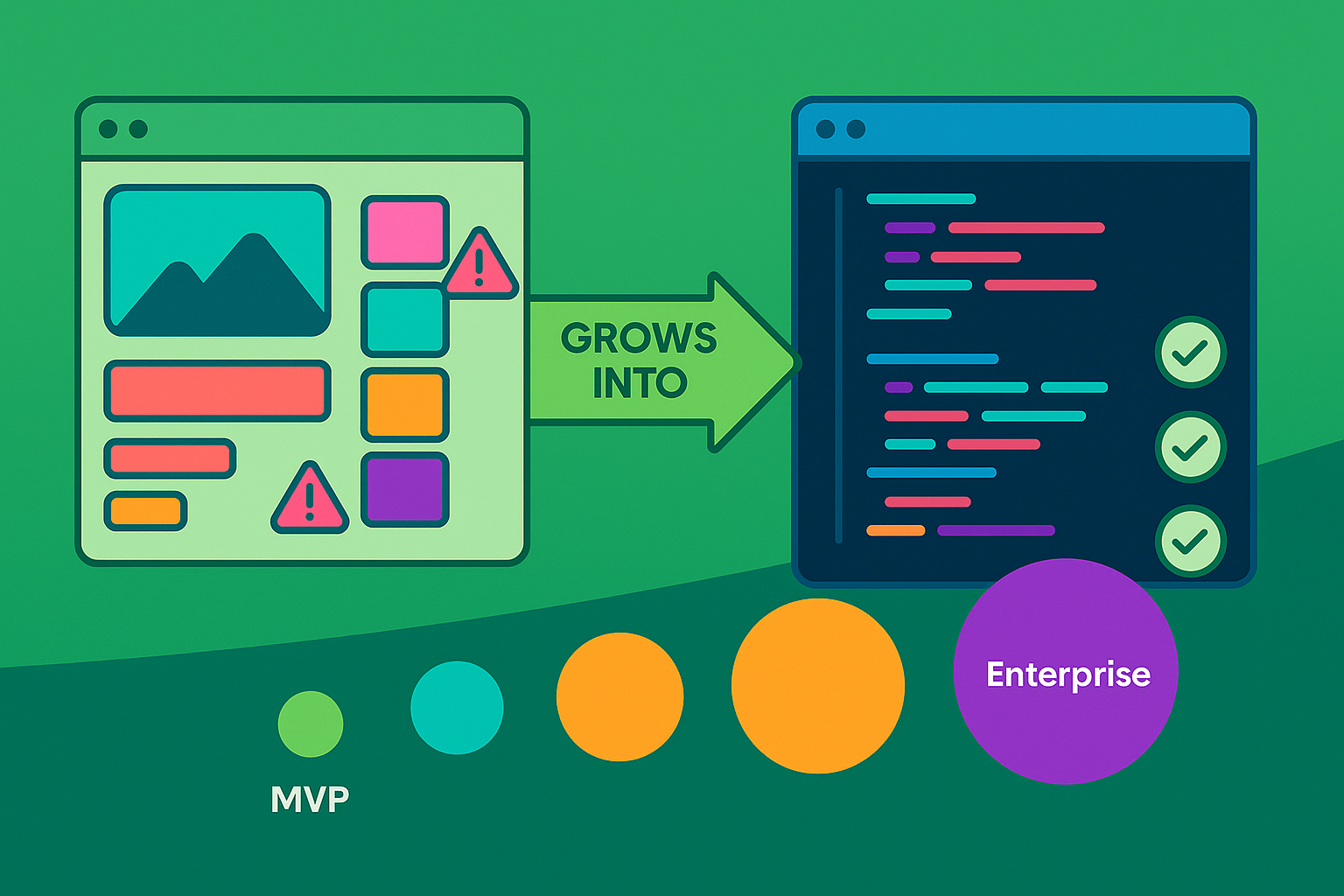Why Every Growing Startup Eventually Ditches Their Low-Code Platform
You think you’re building your dream app, but what if you’re actually building a trap you can’t escape? One founder’s last-minute scramble reveals the risk no one warns you about.

You think you’re building your dream app, but what if you’re actually building a trap you can’t escape? One founder’s last-minute scramble reveals the risk no one warns you about.

Building your first app without knowing how to code? Low-code platforms seem like a dream come true! You can drag, drop, and build something that actually works. No confusing code, no expensive developers, no headaches.
But here's what nobody tells you upfront: you're probably going to dump that platform eventually.
I'm not trying to rain on your parade - I just want you to make smart choices from the start.
Look, I'm not completely against these platforms. They're pretty awesome for certain things:
The key is knowing they're temporary. Think of low-code like training wheels on a bike - super helpful at first, but you'll want to take them off eventually.
Just last week, another founder called me desperate to escape their low-code platform. This happens all the time. Here's why:
Your entire app only works inside their system. Want to move it somewhere else? Good luck! It's like building your house on rented land - you never really own it.
When something breaks, you can't peek under the hood to fix it. You just have to hope their support team can help... eventually.
Want to add that cool feature your customers are begging for? If the platform doesn't support it, you're out of luck. No custom solutions allowed!
These platforms are built to work for everyone, which means they're not optimized for anyone. Your app will never run as fast as it could.
Sure, building your first screen feels magical. But try making complex workflows or connecting multiple systems - suddenly that "easy" platform feels pretty complicated.
One person can build something quickly, but when multiple people try working on the same project? Total chaos.
Remember how excited you were about your unique idea? Well, your app will look suspiciously similar to thousands of others using the same templates.
Want to use the latest technology? You'll wait until your vendor decides to add it. Could be months, could be never.
Those monthly fees add up fast as you scale. Unlike custom code that you own forever, these charges never stop.
When things go wrong (and they will), you're completely dependent on someone else's support team to fix your business.
That drag-and-drop simplicity turns into a nightmare when you need to make big changes later.
How are you supposed to answer investor questions about your user data when you can't even see it? Many platforms keep the good analytics behind expensive paywalls.
Without proper data, you're flying blind:
Let me tell you about a startup in Detroit that helps people buy EV chargers and solar panels. They spent two entire years building their platform using Bubble (a popular low-code tool).
Everything seemed great until weeks before their big launch. A major client wanted to sign a huge deal, but they needed:
After two years of work, they faced a terrible choice: lose their biggest client or rebuild everything from scratch. They ended up having to plan a complete migration away from their low-code platform at the worst possible time.
If they had started with a more flexible approach, they could have avoided this expensive, stressful situation entirely.
Here's my honest advice: Low-code makes easy things easier and hard things harder.
If you do use these platforms:
Every successful tech company eventually outgrows low-code. The question isn't if you'll need something more powerful - it's when.
I'm not saying you should never touch low-code platforms. They have their place! Just don't fool yourself into thinking they're a permanent solution for a growing business.
If you're smart about it, low-code can help you test ideas quickly and cheaply. But when you're ready to build something that can actually scale with your success, you'll need a real development strategy.
Need help figuring out if low-code is right for your startup idea? Or already feeling trapped by a platform you've outgrown? Book a one-hour strategy session with our Fractional CTO to get expert guidance on your software development needs.